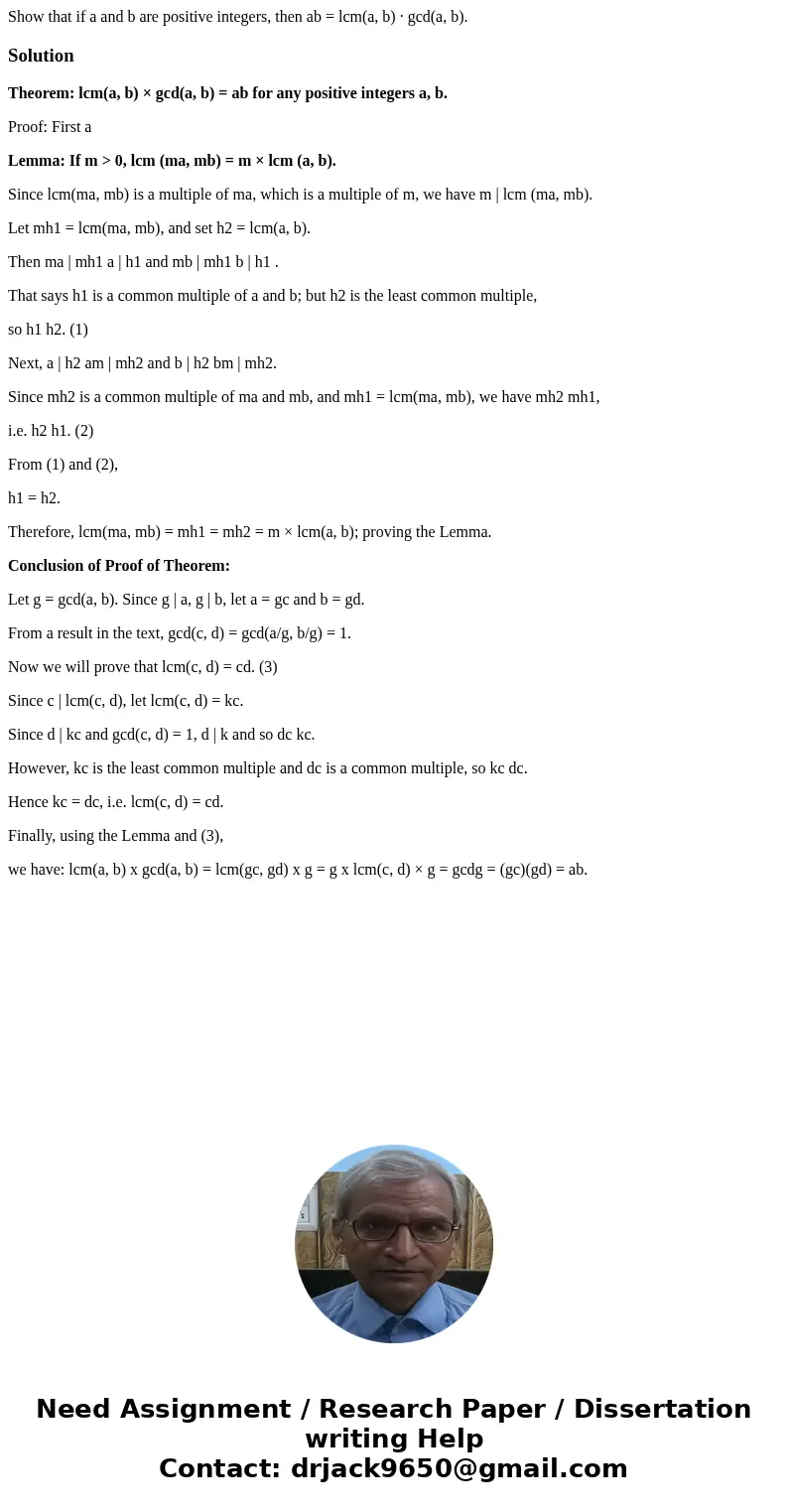Show that if a and b are positive integers then ab lcma b
Show that if a and b are positive integers, then ab = lcm(a, b) · gcd(a, b).
Solution
Theorem: lcm(a, b) × gcd(a, b) = ab for any positive integers a, b.
Proof: First a
Lemma: If m > 0, lcm (ma, mb) = m × lcm (a, b).
Since lcm(ma, mb) is a multiple of ma, which is a multiple of m, we have m | lcm (ma, mb).
Let mh1 = lcm(ma, mb), and set h2 = lcm(a, b).
Then ma | mh1 a | h1 and mb | mh1 b | h1 .
That says h1 is a common multiple of a and b; but h2 is the least common multiple,
so h1 h2. (1)
Next, a | h2 am | mh2 and b | h2 bm | mh2.
Since mh2 is a common multiple of ma and mb, and mh1 = lcm(ma, mb), we have mh2 mh1,
i.e. h2 h1. (2)
From (1) and (2),
h1 = h2.
Therefore, lcm(ma, mb) = mh1 = mh2 = m × lcm(a, b); proving the Lemma.
Conclusion of Proof of Theorem:
Let g = gcd(a, b). Since g | a, g | b, let a = gc and b = gd.
From a result in the text, gcd(c, d) = gcd(a/g, b/g) = 1.
Now we will prove that lcm(c, d) = cd. (3)
Since c | lcm(c, d), let lcm(c, d) = kc.
Since d | kc and gcd(c, d) = 1, d | k and so dc kc.
However, kc is the least common multiple and dc is a common multiple, so kc dc.
Hence kc = dc, i.e. lcm(c, d) = cd.
Finally, using the Lemma and (3),
we have: lcm(a, b) x gcd(a, b) = lcm(gc, gd) x g = g x lcm(c, d) × g = gcdg = (gc)(gd) = ab.

 Homework Sourse
Homework Sourse